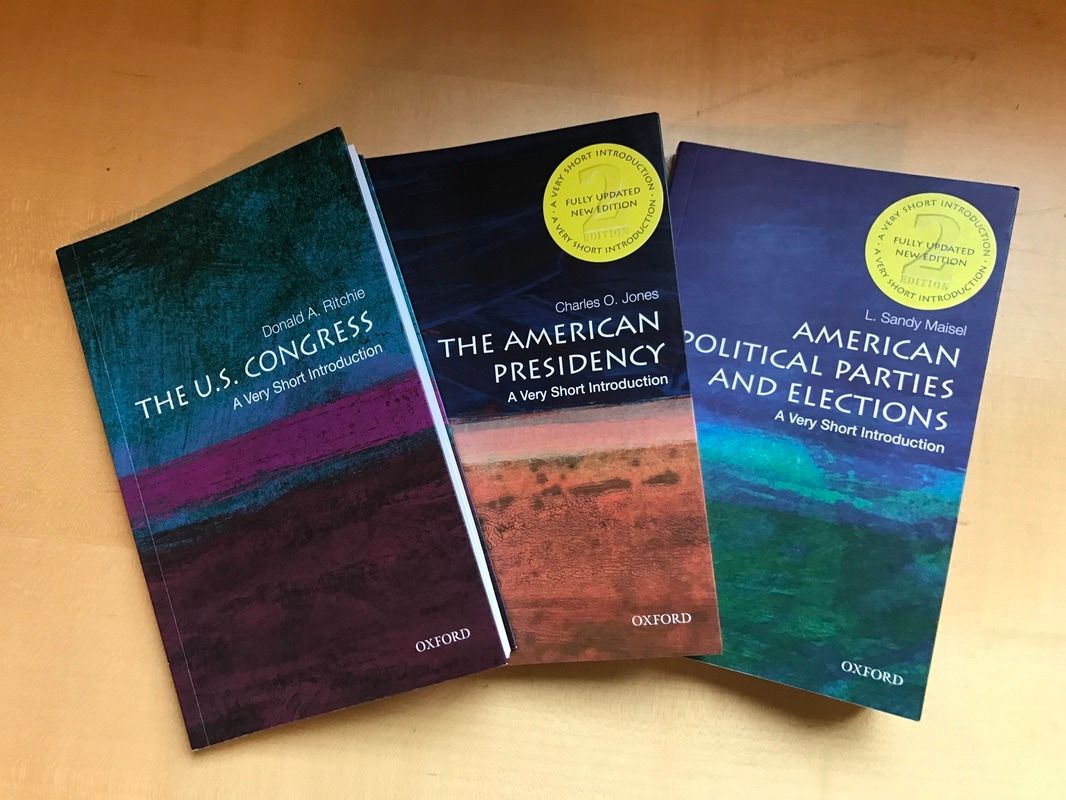|
By Ray Smock Oxford University Press publishes an exciting series of books under the general heading of “A Very Short Introduction.” Top scholars in remarkably wide ranging fields of inquiry synthesize big topics with plenty of wallop per page. Three in the series are right in the wheelhouse of the Byrd Center’s mission and I am pleased to recommend them to you. The first is Donald A. Ritchie, The U.S. Congress: A Very Short Introduction (2010). The first thing I should say about this book is a disclaimer! Don is a member of the board of directors of the Byrd Center, a former Historian of the Senate and a long-time colleague and dear friend. But don’t draw from this any bias on my part! I am here to praise all three of these titles for their excellent quality and their utility for general readers as well as scholars in the field. Ritchie begins with the Federal Convention of 1787 and traces the Founders creation of a Congress with two distinct bodies, a Senate and a House. There is no such thing as “Congress” other than as a general term for the two bodies. Grasping this important point helps immensely in understanding how Congress works. This book will take you on a historical and political tour of the Capitol, what goes on there, and along the way you will learn the meaning of representative democracy. The second is Charles O. Jones, The American Presidency: A Very Short Introduction (2016). This is a second edition and has recently been updated, but was published before the last presidential election. It has a useful appendix of all presidents through Barack Obama that include the percentage of popular and electoral votes in each contest. Jones has been a keen observer and student of the presidency for many years. His books on the presidency are of the highest caliber and his insights are straightforward with no nonsense. His respect for this high office is apparent on every page, but as he says in the introduction, when he was younger he thought presidents were superhuman but that “Later I learned it was the expectations that were beyond human.” Jones has a section called “Learning to be president” that offers good advice. I hope someone sent our new president a copy of this book for no other reason than to read this:
The third title is L. Sandy Maisel, American Political Parties and Elections: A Very Short Introduction (2016) written by another prolific author and senior authority on American politics, this volume puts the historical development of American parties in perspective, describes the major parties and explains why independents have a hard time getting elected, because, by their very nature they are not parties, they usually develop around individuals. Reading this book will give you an understanding of political parties as elusive in nature, ever changing, depending on grass roots support that is often poorly organized and while the party has to be centralized enough to be cohesive, it is never far from being decentralized. While this edition came out before the election of Donald Trump, the section in this book about the Electoral College should be required reading for all citizens. Here at the Byrd Center we had many inquiries about how Hillary Clinton could win the popular vote by nearly three million votes and still lose in the Electoral College. Maisel traces the origins of the Electoral College and its utility as a compromise measure in the Federal Convention of 1787, up through the modern presidential elections where virtually no one likes or defends the Electoral College. As long as it is not modified or replaced it will remain a central factor in determining how candidates run for the presidency.
Comments are closed.
|
Welcome to the Byrd Center Blog! We share content here including research from our archival collections, articles from our director, and information on upcoming events.
Categories
All
Archives
July 2023
|
Our Mission: |
The Byrd Center advances representative democracy by promoting a better understanding of the United States Congress and the Constitution through programs and research that engage citizens.
|
Copyright © Robert C. Byrd Center for Congressional History and Education
|


 RSS Feed
RSS Feed
